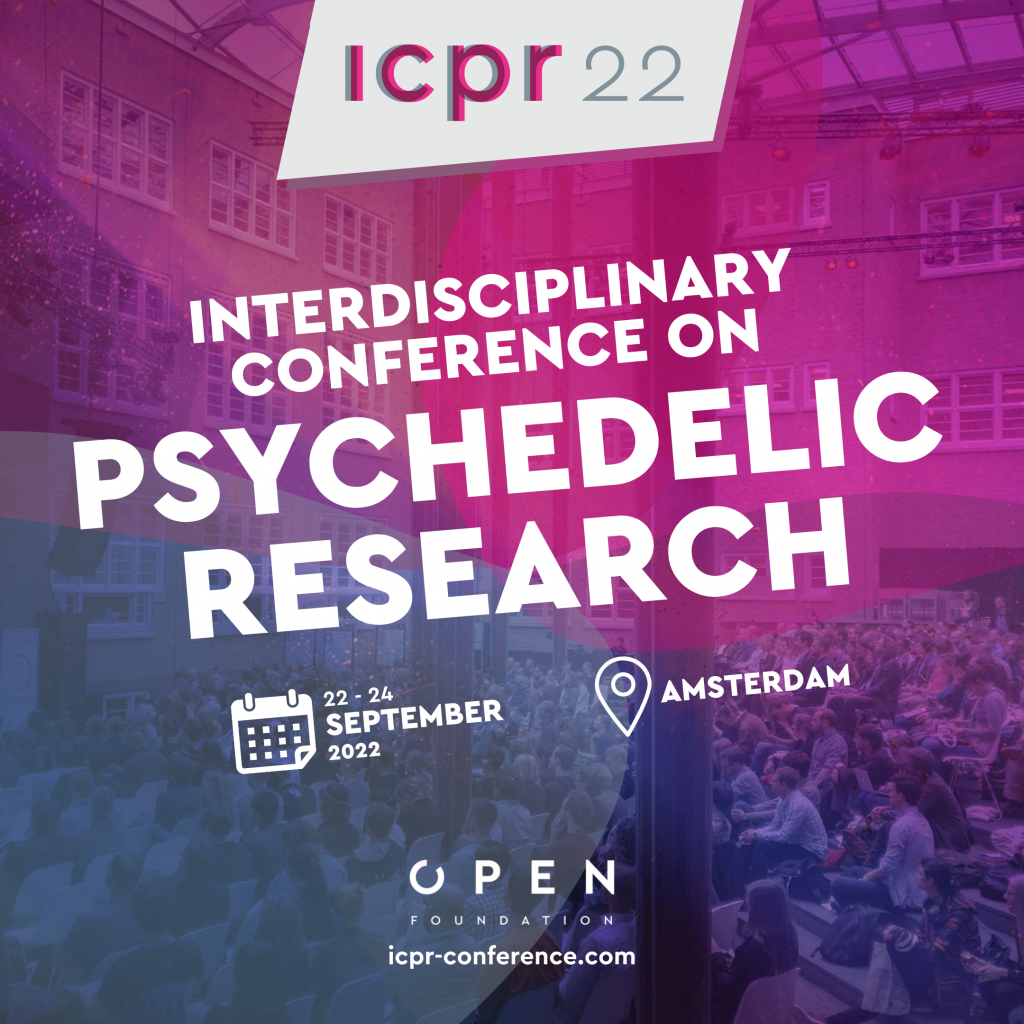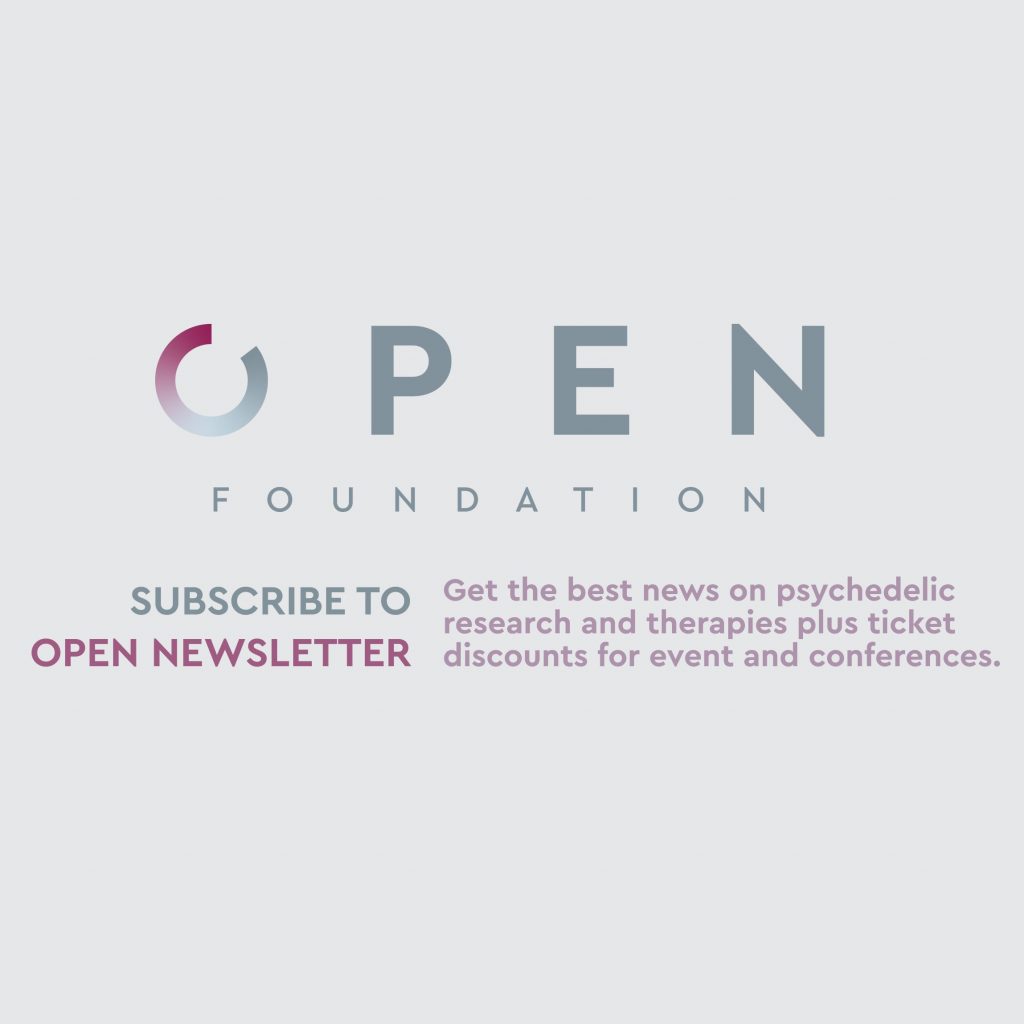Michiel van Elk, an associate professor of cognitive psychology at the University of Leiden, used to be very anti-drugs after growing up in a conservative Christian community. A psychedelic experience later in life put him on a path towards psychedelic research, and today he has an interdisciplinary approach to studying different aspects of the psychedelic experience – from a religious, neuroscientific, spiritual and cognitive to social scientific. An important part of Van Elk’s current work concerns the role of placebo effects in the psychedelic experience.
In previous research, he used a device ominously called the God Helmet. This helmet is essentially a sham brain-stimulation device: participants were made to believe that the helmet would stimulate their brain – potentially resulting in a mystical experience. In reality, it did nothing at all.
Many participants -indeed- reported having such a mystical experience while carrying the God Helmet. This result creates new questions around the role of the placebo effect in mystical experiences in general, and those induced by psychedelics in particular.
This idea is further supported by the ‘Tripping on Nothing’ study in which researchers made a concerted effort to reproduce the experimental context in which psychedelics tend to be administered, including ambient music, psychedelic paintings and color-changing lights. And there also many participants reported experiences usually associated with a medium to high dose of psilocybin (Olson et al., 2022) – even though they were given a placebo.
ㅤ
Jasper: What is your perspective on the role of placebo effects in the psychedelic experience?
Michiel: I think that is still very much an open question. One perspective is that the effects of psychedelics are at least partially mediated by placebo effects, because people have expectations about these effects. Another is that psychedelics are essentially super placebos, by making people more suggestible – leading to a stronger placebo response.
Placebo research is an extensive, established field, including my own research with the God Helmet. We aim to integrate this field of study with research into the psychedelic experience: How do expectations influence the psychedelic experience? And how can psychedelics increase the placebo response?
Jasper: It seems there is still much to be discovered about the role of placebo effects in the psychedelic experience. Assuming this role is indeed there, do you think the beliefs of the researcher also play a role, in addition to those of the patient?
Michiel: Placebo effects are partially based on the perceived credibility of the experimenter. The experimenter doesn’t need to believe in certain effects himself, in order to be a credible source.
If I wear the placebo God Helmet myself, not much will happen. But if I give it to a participant and tell them about how it will stimulate their brain, something will happen.
This has to do with authority and suggestibility. What is important is that the participant believes the story, not so much the researcher himself. I do think this also underlies many psychiatric treatments: what matters is the meaning patients attribute to the treatment and their trust in the clinician, rather than the knowledge of the effect of neurotransmitters or SSRI’s.
ㅤ

ㅤ
Jasper: How would you research that? Would you provide different information to different participants? Or would you measure existing differences in expectations?
Michiel: That is indeed one option: to measure individual differences in existing beliefs. Simply asking participants what they think will happen before they take a psychedelic.
We plan to make it explicit by manipulating expectations about the dosage. We could keep the dosage constant but tell them it’s 5 grams one day and 10 grams the other.
Another manipulation is through framing, for example telling people the substance has strong visual effects, or that it induces mystical experiences. This is comparable to what smartshops [legal dispensaries of psychedelic sclerotia in the Netherlands] already do today.
Do people indeed have more ‘philosophical’, self-reflective trips if they take Philosopher’s stones compared to Hawaiian High truffles, if the packaging suggests so?
Jasper: One of the challenges, in my view, is that you can’t control what people read or have already heard about psychedelics – and how that affects people’s expectations. Is there a way to measure those beliefs and use them as a variable?
Michiel: In practice this is very difficult, because to include individual differences such as these, you need humongous sample sizes. In studies with placebo brain stimulation like with the God Helmet – where we place something on people’s heads that supposedly stimulates their brain, which in reality it does not – we do measure what these participants’ beliefs are regarding ‘brain stimulation’. Whether they believe it really exists, what they’ve read about it, etc. However, nothing consistent was ever found there!
Recently a paper in Nature argued convincingly that if you are interested in establishing a relationship between brain measure X and an individual difference measure Y – like the relation between personality and cognitive performance – you need thousands of participants to establish such an effect. This basically illustrates that in almost any study that has looked at the brain – behavior correlations are severely underpowered.
Jasper: That highlights the importance of open science practices like data sharing.
Michiel: Absolutely. What I would like to see more of is collaborative science, where many different institutions adhere to the same protocol and collect data together. Recent clinical trials with psychedelics successfully employed this model for the Phase II studies for example. However, when it comes to fMRI studies, we are currently not even close to this being a reality. Fortunately, recent attempts have been made to share data more, like analysis scripts between different institutions. That is an important and exciting step forwards!
ㅤ

ㅤ
Jasper: Thank you for offering your thoughts on this topic. Lastly, I would like to ask you: What do you think the status of psychedelics will be in your field of cognitive psychology in the year 2032?
Michiel: Interesting question. I hope different psychedelics will be developed with a more clearly defined mechanism. For example a clearer neurotransmitter profile. Lsd and psilocybin stimulate the 5HT2A receptor but also have many different downstream pharmacological effects, making it difficult to attribute their effects to this receptor alone.
Ketanserin helps a lot already but psychedelics with greater specificity would make this much easier. In this context I also understand why experienced psychopharmacologists are a bit skeptical about psychedelics – pharmacologically speaking it is not a very ‘clean’ manipulation. However, that makes these substances so interesting at the same time as well!
ㅤ
Recently, Jasper Lucas talked to Michiel in a wide-ranging conversation wide ranging discussion about issues surrounding the psychedelic science field. This is part two of their conversation. Van Elk runs the PRiSM lab at Leiden University, which studies psychedelic, religious, spiritual and mystical experiences, and has received a prestigious NWO (government) VIDI grant to study the effects of psychedelics. He is the author of the book ‘A sober look at psychedelics’ – available in Dutch – and is also a speaker at our upcoming conference ICPR 2022 .














